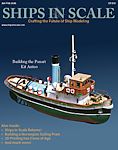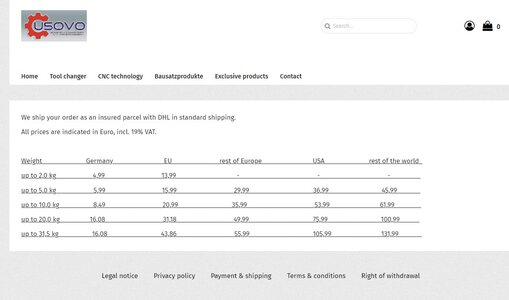Here I am folks again, and as usual, my post starts with the question. Today we will talk about the Proxxon mill MF70 and if there is any possibility to make it a bit better to suit our needs. Well...this discussion, will not be about converting MF70 to a CNC machine. There is plenty of discussion on the net. We also will not talk about how to improve the XYZ table to run it smoothly. So...what will we talk about, Jim?
A long time back I made an order at AliExpress to purchase some endmills for my FM70. Those were hard to find here, in the US, tiny bits like 1.0mm ~ 3mm. They come 3.2mm shank, stright\two-flutes and in various end-mill lengths. When the order arrived, Oh ...No...some of the mills were 4.00mm and even 5.00mm shanks!

It was purely my fault as I didn't check correctly. I was intrigued by the shapes of some of those mills and...got punished. From that time, I was dreaming to convert the standard 8mm threaded collet system to the one that accepted at least 4.00mm shank. Recently I was searching again for the solution and... BINGO!
As you can guess, today I will discuss how to make your MF70 accept larger sizes shanks. The beauty of this method is that you don't have to rub the bank for parts and will not require to re-assemble your MF70. All you need is a converter, ER11 converter (image below).
View attachment 285197
It comes with an 8mm bore at one end. The second end is fitted with an ER11 system, to accept collets (bought separately). On AliExpress, you can buy it as a set. This is important as you can buy as wrong collet system like ER16, they will not be fitted into ER11.
View attachment 285198 View attachment 285203
Here are the colets. The set contained 15 colets to accept 15 different sizes. Technically speaking, you don't really need all the sizes, and you can save by buying those individually as required.
View attachment 285199 View attachment 285202
I was hoping that the converter comes with an M8mm thread, so I can just swap with the existing 3mm collet system. I was wrong, and...got disappointed! However, both the inner diameter of the connector and the outer diameter of my mill rod are 8MM. Eyes are afraid, but hands are doing..... the connector tightly slides to the shaft without any problems. On the sides, the convertor has hex set screws so you can tight it to the mill road. I was afraid to ruin the thread by tying, but my worry was unnecessary. Set screws are almost at the top, and the exiting collet system ( 3mm) never goes that high. Here is how it is looking on my mill.
View attachment 285204
View attachment 285205
I use the 4mm collet, and one of the fancy endmills I bout accidentally, Everything tight and...I turn the mill ON! WOW! The mill was running very smooth, with no additional sound, I mean like nothing changed. The next image is very important because I took it while the mill was running. I didn't use a quick shutter and the photo shows no wobbles at all!!! I wish I can have those indicators but I will move to the tests shortly. Now the image of a running mill.
View attachment 285206
The first impression is very good!! I like it! At least it works! I couldn't wait anymore to mill some wood. So I ran a few tests, I am glad I can share them with you. For the test, I used standard endmills and boxwood scraps so they will hold the edge.
View attachment 285207 View attachment 285208
View attachment 285217
There we of total 8 tests. I marked each test with a number.
Test #1. Proxxon end-mill 1.00mm and Proxxon collet system I pretend I need to make the holes in the cat davits. I use a 1.00mm end-mill from Proxxon (on the upper right image).
View attachment 285209
I use my Mitutoyo caliper. Below is the result. It speaks for itself. Very precision!
 View attachment 285210
View attachment 285210
Test #2 and #3 I use a 1.00mm Proxxon end-mill, and a newly acquired ER11 converter with a 3.00mm collet system. Well, the results are not so impressive. It is off by 0.24mm. It is a lot!
View attachment 285211
Test #4 Used the ER11 system and 4.00mm endmill. The first run (#4) is again off by 0.2mm
View attachment 285212
However, in test #5, I use the different 4.00mm end mill (photo below) and I get a much more desirable result! Oh...yes!
View attachment 285213
View attachment 285214
Test #7 1.00mm Proxxon endmill and ER11 system to mill jsut the deep line in the bloodwood. It did failed again, by 0.28mm
View attachment 285215
Test #8 I used the Kyocera 0.8mm endmils and ER11 system (3.00mm collet), and got the eaxct mesasurements.
View attachment 285216
The test #6 is just the surface test. Works well with 4.00mm stright\2 flute endmill. Very happy. That means, I can remove more wood from a single path if use 5mm endmill.
View attachment 285218
Well, all tests were performed and my general impression - I am happy! Oh, yea!! I didn't make any tests on metals (brass\steel) but honestly, I am mostly using MF70 for woodworking. Finally, I will be able to use 4.00mm and 5.00mm endmills accidentally bouht a long time back. For some reason, the ER11 doesn't like Proxxon endmills, but I will play more and get back to you with the results. The last image shows the nice half-round groove made with one of the 4.00mm special shapes endmills. I can use it for gun carriages.
 View attachment 285219
View attachment 285219
Any questions, please feel free to post, so we can discuss them! I might miss something... it was a busy day, thought
Thank you!








